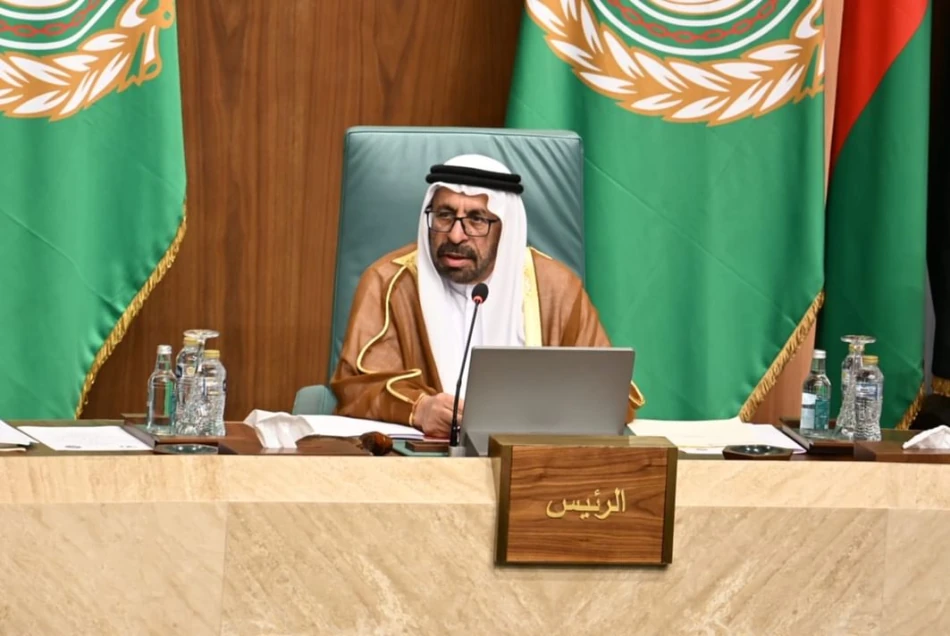
UAE Urges Global Support to Halt Israeli Aggression in Gaza, Bolster Path to Peace
UAE Pushes for Palestinian Statehood Recognition as Regional Crises Demand Arab Unity
The United Arab Emirates is leveraging its leadership of the Arab League ministerial council to build international momentum for Palestinian statehood recognition, while positioning itself as a diplomatic bridge-builder across multiple Middle Eastern conflicts. Speaking at the council's opening session, UAE Minister of State Khalifa Shaheen Al Marar outlined an ambitious agenda that connects Palestinian liberation to broader regional stability—a strategy that reflects the Emirates' evolving role as a pragmatic power broker in an increasingly fragmented region.
France's Palestinian Recognition: A Diplomatic Game-Changer
Al Marar highlighted French President Emmanuel Macron's commitment to recognize Palestine before the UN General Assembly next month as a "significant catalyst" for comprehensive peace efforts. This endorsement carries particular weight given France's influence within the European Union and its historical ties to both Israel and Arab nations.
The UAE's participation in the Saudi-French co-hosted Two-State Solution Conference in New York signals a coordinated Gulf-European approach to Palestinian statehood. Unlike previous diplomatic initiatives that relied heavily on U.S. mediation, this framework positions European powers as alternative facilitators—potentially offering Palestinians new pathways to international recognition.
Strategic Timing and Regional Context
The UAE's push comes as Israel faces mounting international isolation over its Gaza operations and West Bank settlement expansion. Al Marar specifically condemned "illegal Israeli practices and the aggression of settlers and extremists," language that marks a notable hardening of Emirati rhetoric despite the Abraham Accords normalization agreement.
This balanced approach—maintaining Israeli relations while advocating for Palestinian rights—reflects the UAE's broader diplomatic strategy of compartmentalizing regional issues to maximize its influence across competing camps.
Iran Tensions Persist Despite Regional Shifts
Al Marar renewed UAE demands for Iran to resolve the dispute over three occupied islands—Greater Tunb, Lesser Tunb, and Abu Musa—through bilateral negotiations or International Court of Justice arbitration. This persistent grievance underscores how territorial disputes continue to complicate Middle Eastern diplomacy, even as both nations have recently engaged in de-escalation talks.
The UAE's dual approach of diplomatic engagement and legal pressure mirrors similar strategies employed by other Gulf states managing complex relationships with Iran while maintaining security partnerships with Western allies.
Economic Diplomacy as Conflict Resolution
The Emirati minister emphasized "maximizing joint Arab economic efforts" and prioritizing diplomacy over confrontation—a philosophy that has driven the UAE's emergence as a regional financial hub. This economic-first approach has proven effective in previous crises, from facilitating Syria's Arab League readmission to maintaining trade relationships across political divides.
Green Economy Leadership
Al Marar positioned the UAE's investments in clean energy, artificial intelligence, and education as models for regional cooperation. Having hosted COP28 and committed billions to renewable energy projects across Africa and Asia, the Emirates is leveraging climate diplomacy to build influence beyond traditional geopolitical frameworks.
This strategy offers Arab nations an alternative to oil-dependent economies while creating new partnership opportunities with European and Asian powers increasingly focused on sustainability metrics.
Testing Diplomatic Pragmatism
The UAE's current Arab League leadership comes during what Al Marar termed "an extremely critical moment in the region." Success in building consensus on Palestinian recognition could establish the Emirates as the Gulf's primary diplomatic innovator, potentially surpassing Saudi Arabia's traditional leadership role.
However, the strategy faces significant challenges. Israeli officials have already signaled potential economic retaliation against nations recognizing Palestine, while Iran continues to view UAE regional initiatives with suspicion. The test will be whether Emirati economic incentives and diplomatic flexibility can overcome these structural obstacles to achieve meaningful progress on Palestinian statehood—or whether regional polarization will ultimately constrain even the most pragmatic diplomatic approaches.
Most Viewed News

 Sara Khaled
Sara Khaled






